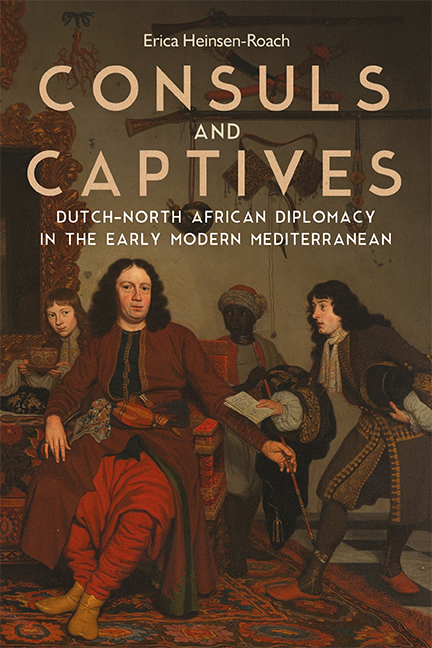4 - Ransoming Is the Norm
Published online by Cambridge University Press: 21 March 2020
Summary
Less than half a year after Consul Wijnant Keyser arrived in Algiers, he doubted whether he should stay on as consul: “I am confused and hold one thousand thoughts on what I should do. If I receive permission to leave, then the poor slaves left behind have nobody to take up their cause.” Keyser’s remark reveals a discrepancy between the expectations of the States General and the experiences of its representatives on the ground. Legally supported by the 1612 capitulations that required Algiers and Tunis to release Dutch captives for free, the States General refused to acknowledge the corsairs’ actions as rightful or to support the ransom economy. It had therefore instructed Keyser to demand the unconditional liberation of the prisoners.
The Dutch policy of free release, however, was doomed from the start. Keyser had entered not only a thriving port town but also a world that had long set its own rules and conditions for capturing and releasing captives. Redemption involved intricate rules of negotiation and customary knowledge, and required great financial leeway. Most important, Maghribi officials, deeply involved in commercialized redemption, expected that the consul would pay for the release of slaves and not claim them for free. Thus, the Maghribi and Dutch authorities held opposite expectations of how a consul should engage in redemptive practices. Keyser's case demonstrates that the situation in the Maghrib forced him and other consuls to adjust to local customs and ransom captives. In doing so, they undermined the policies of the States General and redefined their role as state representative more in line with the wishes of Algiers and Tunis than those of The Hague and Amsterdam. In the process, captives from the Dutch Republic came to depend greatly on the ransoming practices of the consul to secure their freedom. If Keyser left, then who indeed would ransom them from Algiers and Tunis?
Keyser decided to stay and turned his consulate into a model for his successors, albeit not in ways the States General envisioned. Keyser set a precedent by adopting the norms of the western Mediterranean and forcing the States General to change its expectations.
- Type
- Chapter
- Information
- Consuls and CaptivesDutch-North African Diplomacy in the Early Modern Mediterranean, pp. 77 - 96Publisher: Boydell & BrewerPrint publication year: 2019



